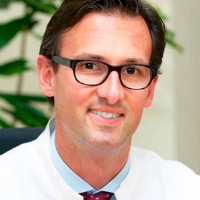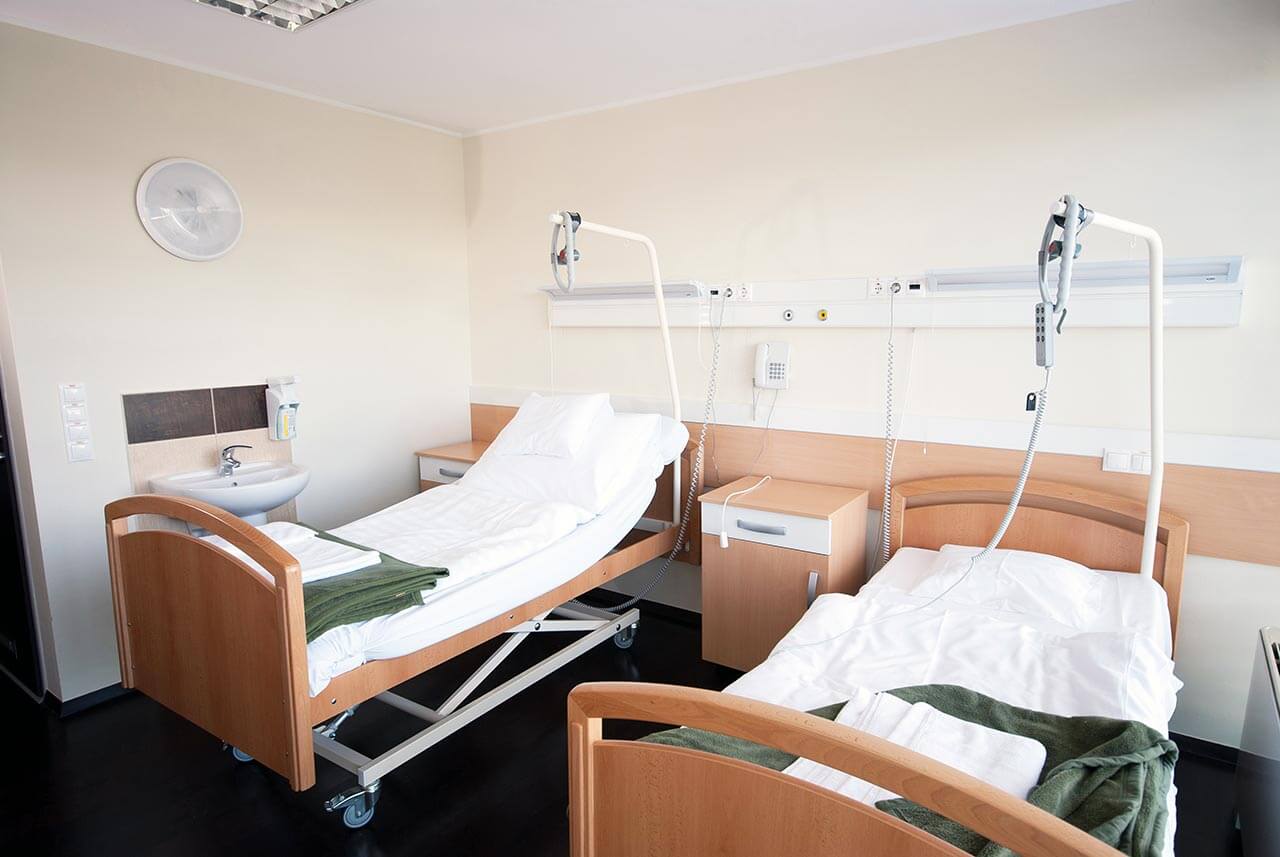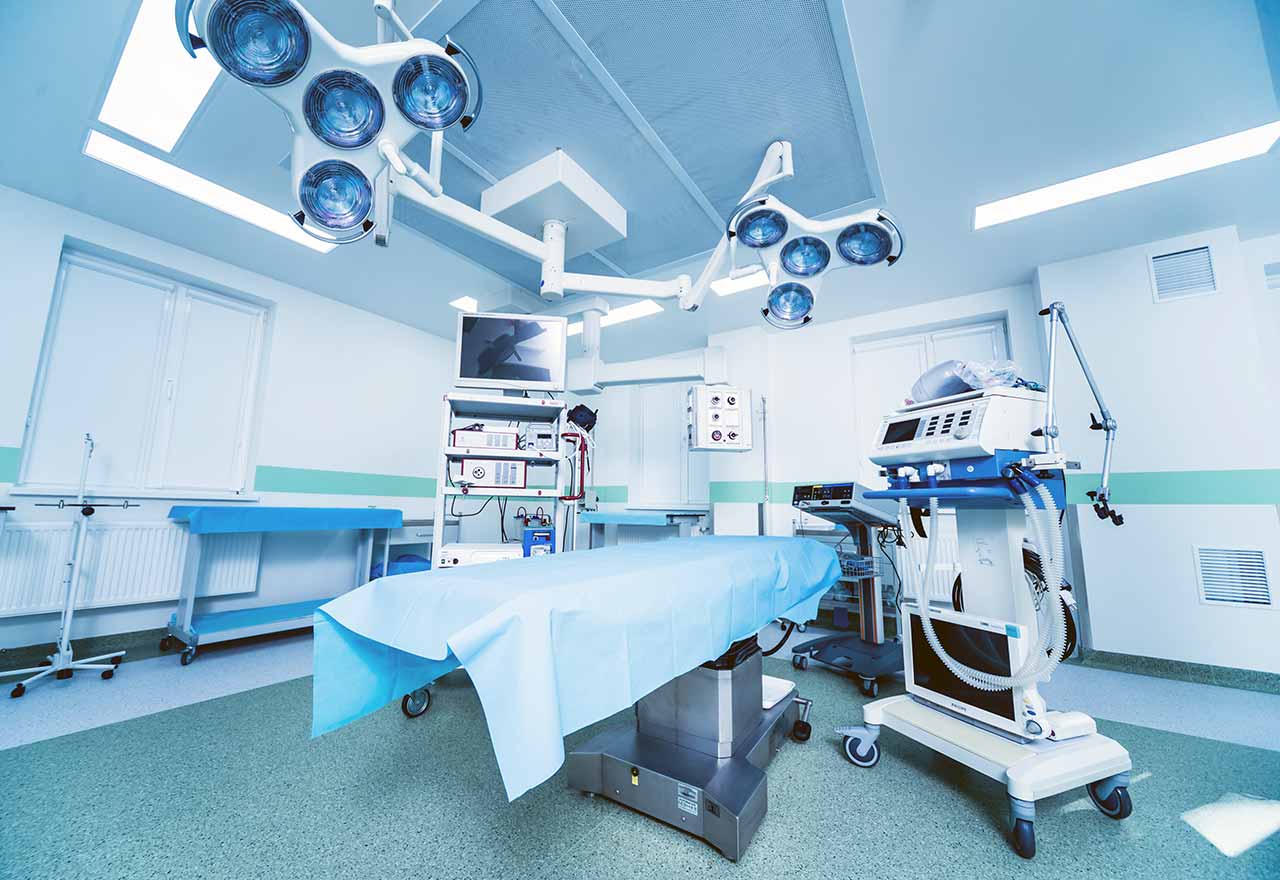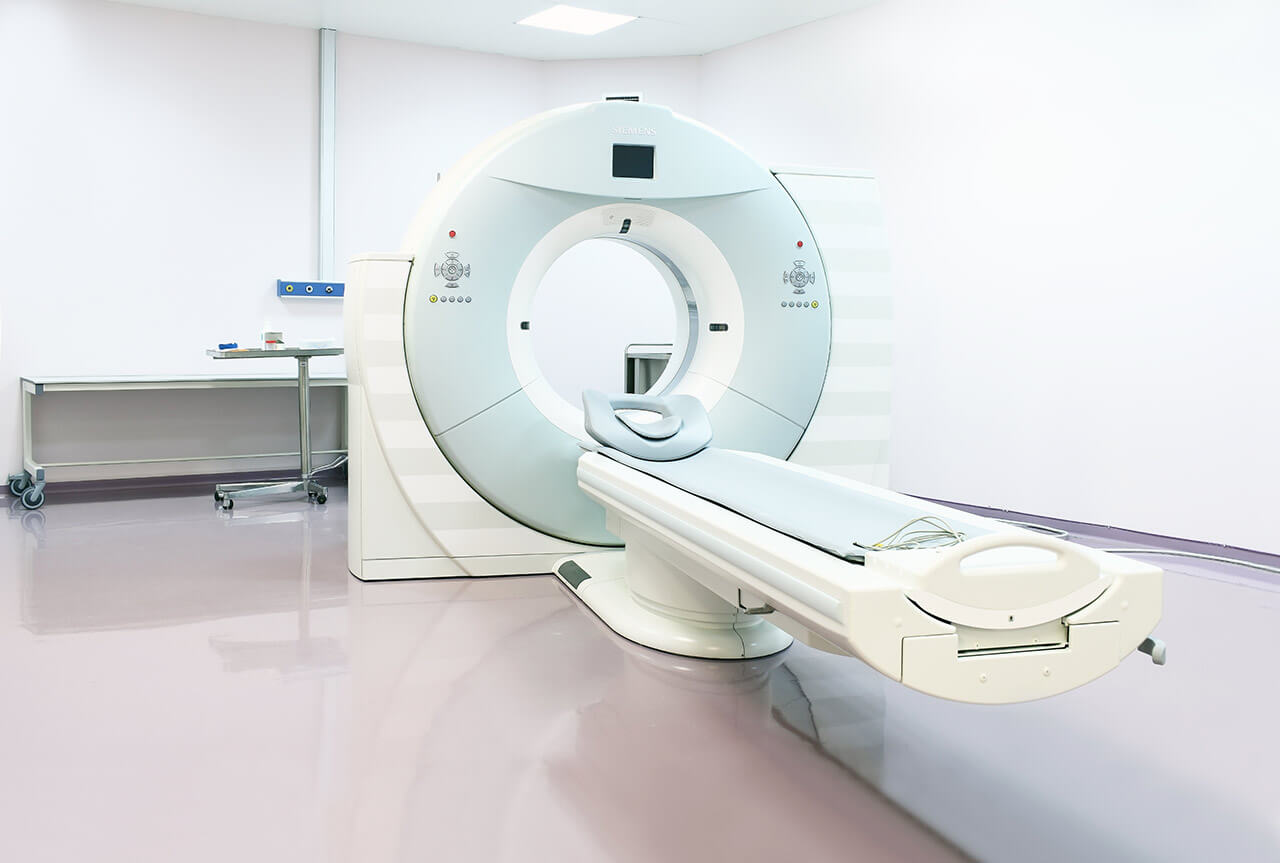
The program includes:
- Initial presentation in the clinic
- clinical history taking
- physical examination
- neurological examination
- reflexes
- muscle strength
- muscle tone
- senses of touch and sight
- coordination
- balance
- ECG
- laboratory tests:
- complete blood count
- biochemical analysis of blood
- enzyme tests
- inflammation indicators
- indicators blood coagulation
- nerve, muscle biopsy (on indications)
- repetitive nerve stimulation
- single-fiber electromyography (EMG)
- pulmonary function tests
- brain CT/ MRI
- electroencephalography
- cerebrovascular doppler ultrasound
- contrast MRI blood vessels examination
- consultation of related specialists
- symptomatic specific treatment
- the cost of essential medicines and materials
- nursing services
- control examinations
- full hospital accommodation
- developing of further guidance
Required documents
- Medical records
- Doppler ultrasound/duplex scanning of the brain vessels (if available)
- Brain MRI/CT scan (if available)
Service
You may also book:
 BookingHealth Price from:
BookingHealth Price from:
About the department
The Department of Neurology and Epileptology at the HELIOS University Hospital Wuppertal provides the full range of medical services to patients suffering from diseases of the nervous system, including epilepsy. The department has a Stroke Unit certified by the German Stroke Society (DSG), which annually provides medical care to about 1,000 stroke patients. The department's medical team also specializes in the treatment of neuromuscular diseases, dementia, Parkinson's disease, multiple sclerosis, dizziness, chronic headaches and diseases of the peripheral nervous system. Patients with neuro-ophthalmic pathologies are admitted in cooperation with ophthalmologists. The department is equipped with advanced diagnostic rooms for a comprehensive examination of the nervous system – they have modern systems for electroencephalography, recording of evoked potentials, electromyography, neurography, Doppler sonography and other diagnostic tests. The treatment is based on pharmacotherapy. The department's doctors have long clinical experience, and therefore they successfully select the optimal treatment regimen that allows the patient to recover as much as possible. The department is headed by Prof. Dr. med. Juraj Kukolja.
The department often admits patients with multiple sclerosis, which is a chronic autoimmune disease that affects the brain and spinal cord. Unfortunately, as of today, the pathology remains incurable, but the department's neurologists have in their arsenal effective treatment regimens that help to achieve stable remission. Without timely treatment, multiple sclerosis can lead to irreversible changes: sensory disorders, vision loss, impaired coordination, and even disability. Since pathology often affects young people, its effective treatment plays an extremely important role in providing the patient with a decent quality of life. The treatment regimen for multiple sclerosis is based on taking medications that correct the immune system. Doctors also often prescribe physiotherapy, therapeutic exercises and massage therapy.
The treatment of Parkinson's disease also occupies an important place in the clinical practice of the medical facility. The main manifestation of a neurological disorder is movement disorders: mobility limitation, limb tremor, involuntary movements of the limbs at rest. In addition, Parkinson's disease causes mental disorders, in particular, a decline in mental abilities. The pathology is progressive. There are no therapeutic methods that could completely relieve the patient of the disease, so the goal of treatment is to alleviate symptoms, improve the patient's overall health and slow the disease progression. To confirm the diagnosis, the department's specialists use such examinations as ultrasound, MRI, neurophysiological tests and DaTSCAN brain scintigraphy. The therapeutic protocol usually includes the use of individually selected medicines, as well as physiotherapy, speech therapy, and occupational therapy.
A special offer of the medical facility is care for patients with neuro-ophthalmic diseases. In collaboration with ophthalmologists, neurologists provide treatment to patients with impaired visual acuity, visual field defects, double vision, oculomotor nerve palsy, nystagmus, etc. To determine the cause of visual impairment and confirm its neurological origin, the department carries out electrophysiological tests, eye movement diagnostics using video-oculography, MRI and CT scans. With the diagnostic results, the specialists plan further treatment.
The team of the department's neurologists also deals with the treatment of epilepsy. The first condition that determines the treatment success is high-quality comprehensive diagnostics. First of all, the attending physician examines the patient's medical history, carries out a clinical examination, after which an electroencephalography is performed to assess the brain electrical activity. Should the diagnosis be confirmed, the attending physician will select the optimal anticonvulsant drug (the intake of several medications at the same time is rarely recommended). The treatment is quite long, and it usually takes 3-5 years or more for the complete disappearance of epileptic seizures. In especially complex clinical cases, brain surgery is recommended, which is performed by neurosurgeons.
The department specializes in the diagnostics and treatment of the following neurological pathologies:
- Stroke
- Epilepsy
- Multiple sclerosis
- Parkinson's disease
- Dementia
- Chronic headaches
- Dizziness
- Neuromuscular diseases
- Neuro-ophthalmic diseases
- Polyneuropathy (pathologies of the peripheral nervous system)
- Other neurological disorders
The department's range of medical services includes:
- Diagnostics
- Neurophysiological tests
- Electroencephalography (EEG)
- Recording of evoked potentials
- Neurography
- Electromyography (EMG)
- Assessment of the state of the autonomic nervous system, including orthostatic test
- Video-oculography
- Imaging tests
- Doppler ultrasonography
- Ultrasound scanning
- CT scanning
- Magnetic resonance imaging
- Laboratory tests
- Neurophysiological tests
- Treatment
- Lysis therapy and thrombectomy for stroke treatment
- Pharmacotherapy
- Auxiliary therapeutic methods: physiotherapy procedures, therapeutic exercises, massage therapy, occupational therapy and other types of therapy
- Other diagnostic and therapeutic options
Curriculum vitae
Higher Education and Postgraduate Training
- 12.2011 Habilitation, Faculty of Medicine, University of Cologne. Subject: "Pharmacological modulation of episodic memory".
- 06.2002 Graduation thesis defense, Faculty of Medicine, University of Freiburg. Subject: "Antiepileptic gabapentin (Neurontinâ) as an agonist of ATP-sensitive potassium channels".
- 10.1995 - 04.2002 Study of Human Medicine at the University of Freiburg, Germany.
- 10.1999 - 02.2000 Study of Human Medicine at the University of Vienna, Austria.
- 04.2001 - 02.2002 Internship: Department of Surgery, Victoria Hospital, University of Cape Town, South Africa; Department of Internal Medicine, General Hospital, University of South Florida, Tampa, USA; Department of Neurology, Villingen-Schwenningen Hospital, University of Freiburg.
Professional Career
- Since 12.2015 Professor for dementia and age-related nervous system changes.
- Since 03.2012 Neurologist (Consultant), Department of Neurology, University Hospital Cologne.
- Since 07.2002 Postdoctoral Fellow, Cognitive Neuroscience, Institute of Neuroscience and Medicine at the Research Center Juelich.
- 10.2011 - 12.2011 Resident, Department of Geriatrics, Hermann Josef Hospital Erkelenz.
- 03.2008 - 02.2011 Resident, Department of Neurology, University Hospital Cologne.
- 03.2007 - 02.2008 Resident, Department of Psychiatry and Psychotherapy, University Hospital Bonn.
- 07.2002 - 02.2007 Intern and Resident, Department of Neurology, University Hospital RWTH Aachen.
Qualifications
- 11.2014 Neurological Intensive Care Certificate.
- 12.2014 Certified EEG Instructor.
- 03.2012 EEG Certificate.
- 03.2010 Board Certification in Neurology.
Research Interests
- Neuropsychology.
- Functional magnetic resonance imaging.
- Positron emission tomography.
- Impaired memory and concentration.
- Dementia
- Neuro-ophthalmic diseases.
Memberships in Professional Societies
- German Society of Neurology.
- German Society for Clinical Neurophysiology and Functional Imaging.
- Society for Neuroscience.
- International Society to Advance Alzheimer's Research and Treatment.
Photo of the doctor: (c) Helios Universitätsklinikum Wuppertal
About hospital
According to the prestigious Focus magazine, the HELIOS University Hospital Wuppertal ranks among the top medical facilities in Germany!
The hospital rightfully enjoys the status of the maximum care medical facility and provides its high-quality services in all modern fields of medicine. The hospital operates on the basis of the Witten/Herdecke University, which was opened in 1982 and today is considered one of the best in Germany. Thus, many head physicians of the medical complex are in charge of the corresponding department at the university, which contributes to the close intertwining of research activities and clinical practice. The hospital has long traditions and its own values – the main goal of doctors is to provide comprehensive medical care focused not only on curing the disease, but also on the patient's personal needs.
The hospital has 1,000 beds. The doctors of the medical facility admit more than 50,000 inpatients annually. In addition, more than 100,000 outpatients undergo diagnostic and therapeutic procedures. Such high attendance rates speak for themselves and are undeniable proof of the high-quality medical service of the European level. The medical staff of the hospital has more than 2,500 employees, whose main task is to restore the patient's health and provide him with a decent quality of life.
The hospital has more than 26 specialized departments, as well as many narrowly focused centers and institutes dealing with the treatment of patients suffering from a particular group of diseases: Breast Center, Cancer Center, Cardiology Center, Trauma Center, Spine Center and others. The primary clinical focus of the medical center is cancer treatment.
For more than 25 years, the hospital has been running a special quality management system for medical care, which regulates the aspects of work of the medical staff, compliance with hygiene and safety standards during diagnostics and treatment. Consequently, patients can be sure that their health is in the safe hands of true professionals who work in accordance with the latest medical standards.
Special attention should be paid to the honors of the hospital for excellent patient care. The medical complex has quality certificates from the German Cancer Society (DKG), the German Trauma Society (DGU), the German Cardiac Society (DGK), the German Stroke Society (DSG) and other professional German societies.
Photo: (с) depositphotos
Accommodation in hospital
Patients rooms
The patients of the HELIOS University Hospital Wuppertal live in comfortable single, double, triple and quadruple rooms. Each patient room has an ensuite bathroom with shower and toilet. The standard room furnishings include a comfortable automatically adjustable bed, a bedside table, a wardrobe, a TV and a telephone. The hospital has Wi-Fi (free). For maximum patient comfort, there is a nurse call device on the bedside table. This device allows the patient to control the TV, radio, turn on or off the lights, and adjust the position of the bed.
The patients of the hospital are also offered accommodation in enhanced-comfort rooms. These rooms additionally provide a safe and a free minibar with soft drinks. The enhanced-comfort rooms also have a spacious bathroom with hairdryer, bathrobe, towels and toiletries.
Meals and Menus
The patients of the hospital are offered three meals a day: breakfast, lunch and dinner. The menu offers a variety of delicious dishes to suit all tastes, including dietary and vegetarian options.
The hospital also has a bistro where one can taste delicious hot dishes, cold snacks, desserts, as well as a cup of tea, coffee or refreshments.
The patients staying in enhanced-comfort rooms are offered a separate menu that includes a wider and more refined range of dishes. In addition, fresh fruit, tea, coffee and desserts are delivered to the patient room every day, if desired.
Further details
Standard rooms include:
Religion
The religious services are available upon request.
Accompanying person
During an inpatient program, your accompanying person can stay with you in the patient room or in the hotel of your choice.
Hotel
During an outpatient program, you can stay in the hotel of your choice. Our managers will help you choose the most suitable options.




